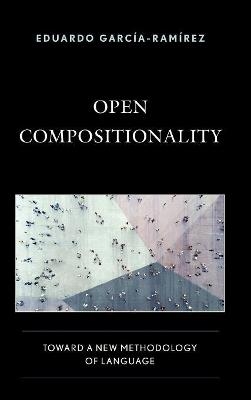
Open Compositionality
Toward a New Methodology of Language
Seiten
2019
Lexington Books (Verlag)
978-1-4985-6272-0 (ISBN)
Lexington Books (Verlag)
978-1-4985-6272-0 (ISBN)
Open Compositionality: Towards a Methodology of Language offers a fresh view into human languages as supermodular, highly interactive cognitive capacities allowing for human unique thought and communication. It is a novel account of semantics as decision-making in tandem with the cognition first methodology.
Open Compositionality: Towards a New Methodology of Language argues that natural languages, like English and Spanish, are not only systems of representation useful for communication but also, and most importantly, highly interactive cognitive capacities allowing humans to engage in complex forms of cognition. This view goes against the orthodoxy in philosophy of language, which considers natural languages to be specialized systems consisting of only linguistic elements and functioning in a closed compositional manner, allowing for a fully formal, algebraic descriptions. Eduardo García Ramírez rejects the longstanding principle of compositionality, according to which the meaning of any complex expression is fully determined by its parts and the way they are combined, and substitutes it with an alternative, open and interactive one. This novel view of the nature of language better accounts for the empirical evidence. García Ramírez develops an account of open compositionality, accompanied by the cognition first methodology, in which natural languages are conceived as supermodular cognitive capacities that allow for interaction among multiple distinct areas of human cognition. The explanatory success of this novel proposal and its accompanying methodology are tested by the author’s account of three enduring philosophical problems: substitution failure, empty names, and the nature of moral discourse.
Open Compositionality: Towards a New Methodology of Language argues that natural languages, like English and Spanish, are not only systems of representation useful for communication but also, and most importantly, highly interactive cognitive capacities allowing humans to engage in complex forms of cognition. This view goes against the orthodoxy in philosophy of language, which considers natural languages to be specialized systems consisting of only linguistic elements and functioning in a closed compositional manner, allowing for a fully formal, algebraic descriptions. Eduardo García Ramírez rejects the longstanding principle of compositionality, according to which the meaning of any complex expression is fully determined by its parts and the way they are combined, and substitutes it with an alternative, open and interactive one. This novel view of the nature of language better accounts for the empirical evidence. García Ramírez develops an account of open compositionality, accompanied by the cognition first methodology, in which natural languages are conceived as supermodular cognitive capacities that allow for interaction among multiple distinct areas of human cognition. The explanatory success of this novel proposal and its accompanying methodology are tested by the author’s account of three enduring philosophical problems: substitution failure, empty names, and the nature of moral discourse.
Eduardo García Ramírez is research fellow at the Institute for Philosophical Research of the National Autonomous University of Mexico.
Preface
1. Two Views of Language
2. The Closed View and Strong Compositionality
3. The Failure of Strong Compositionality
4. Open Compositionality and the Cognition First Methodology
5. Lexical Processing Architecture and Substitution Failure
6. Decoupled Representations and Empty Names
7. Moral Discourse, Moral Cognition and the Language Analogy
Bibliography
| Erscheinungsdatum | 10.05.2021 |
|---|---|
| Verlagsort | Lanham, MD |
| Sprache | englisch |
| Maße | 161 x 227 mm |
| Gewicht | 535 g |
| Themenwelt | Geisteswissenschaften ► Philosophie ► Sprachphilosophie |
| Geisteswissenschaften ► Sprach- / Literaturwissenschaft ► Sprachwissenschaft | |
| ISBN-10 | 1-4985-6272-8 / 1498562728 |
| ISBN-13 | 978-1-4985-6272-0 / 9781498562720 |
| Zustand | Neuware |
| Haben Sie eine Frage zum Produkt? |
Mehr entdecken
aus dem Bereich
aus dem Bereich
Aspekte einer Ontologie des Logos
Buch | Hardcover (2024)
Springer Fachmedien (Verlag)
CHF 167,95
Wie die Menschheit zu ihrer größten Erfindung kam
Buch | Softcover (2022)
C.H.Beck (Verlag)
CHF 25,20
Macht und Legitimität politischer Sprache im Prozess der europäischen …
Buch | Softcover (2023)
Nomos (Verlag)
CHF 103,60


